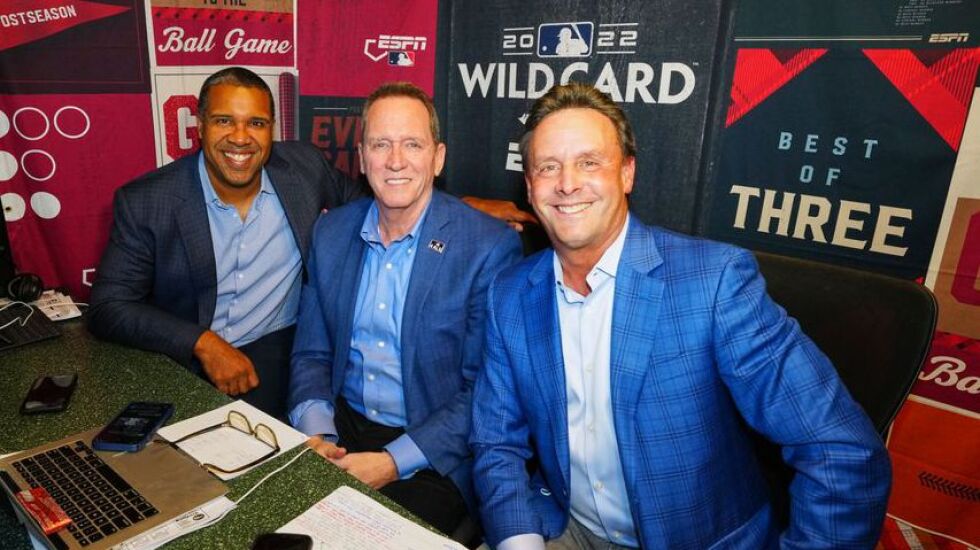
The Cubs will make their first appearance on ESPN’s “Sunday Night Baseball” this weekend when they conclude a key series against the Diamondbacks. Usually by now, “SNB” has aired at least one Cubs game, but the team didn’t warrant it for most of the season.
ESPN, which did carry a Cubs-Cardinals game from London on a Sunday morning in June, added Cubs-Diamondbacks just two weeks ago. Karl Ravech is glad it did.
“Nobody is happier having Chicago involved in a pennant race or wild-card race than I am given they’re going to be on Sunday night,” said Ravech, who’s in his 30th year at ESPN and second season as the play-by-play voice for “Sunday Night Baseball.” “It’s a wonderful baseball market, we all know that.”
The Cubs and D-backs are vying for a wild-card berth in the National League playoffs, but the Cubs also have an eye on the Central Division-leading Brewers. It all makes for an appealing game.
And “SNB” has turned into an appealing broadcast again after ESPN moved on from the maligned booth of Matt Vasgersian and Alex Rodriguez. Ravech, analysts David Cone and Eduardo Perez, reporter Buster Olney and producer Andy Jacobson have put the show back on track.
“I couldn’t be more pleased with it,” Ravech said. “Like any team, we all had to get to know each other. This year there’s been another level with the camaraderie, the comfort. Most important, we trust each other. You know when one’s gonna talk.”
ESPN had yet to announce which player will be mic’d up for its weekly in-game interview. Though ESPN largely has pulled it off, it can make for cringe-worthy television. The Cubs’ Marquee Sports Network learned that last week when center fielder Cody Bellinger didn’t catch a ball while being interviewed, leading viewers to wonder whether the chatter affected him.
“There’s an inherent risk when you are talking with somebody who is doing their job,” Ravech said. “Our goal is to ask a question during a period where the pitch isn’t being thrown. Then it’s on the player to pause when the pitch is thrown, and they are great at picking up the answer [afterward].”
On a “Sunday Night Baseball” broadcast last season, Mets shortstop Francisco Lindor was answering a question when a ball was hit 102 mph at him. He fielded it to start a double play, to Ravech’s relief.
“We were all grateful that he was able to make the play because you know that you’re opening yourself up to the possibility of criticism,” he said. “And while they will say it’s the broadcast’s fault, I would imagine if the player were being honest, they would say absolutely not, I’m able to multitask.”







